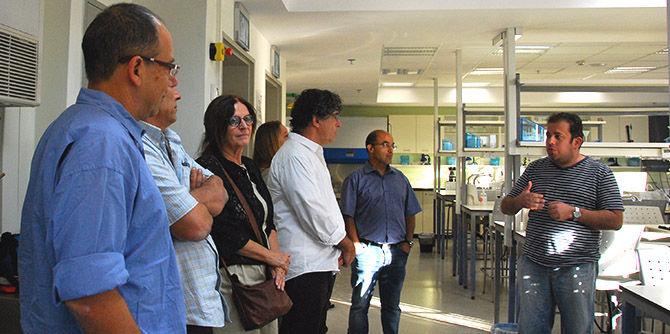A number of pressing issues and questions are raised by today’s rapid changes in technology and their implications for future professions, set against the lack of qualified personnel in many areas of the industry.
The challenge that faces Israeli society, and especially individuals active in educational and social fields, is to consider the future of technology education, its content, and its role, and to address the following question: how should technological education be designed so as to be dynamic and relevant in a world in which knowledge and technology are changing so rapidly, and in which the professions of the present are disappearing while those of the future are not yet known? The Mandel Graduate Unit set out to determine how and where this question, which faces all educators, is relevant to Mandel graduates in particular.
On November 8, 2015, a roundtable on this subject was held for graduates of the Mandel School for Educational Leadership who are concerned with the future of technology education and willing to commit to a long-term roundtable process that will culminate in the development of products that will be presented to decision makers.
This event, which in effect relaunched a roundtable on technology education that was conducted as part of the Mandel Graduate Unit’s “Leadership First” conference in February 2016, was attended by 10 graduates, and was hosted by Dr. Gideon Kaplan, a graduate of Cohort 19 of the Mandel School for Educational Leadership and director of the Regional Technological Center of the Beer Sheva Municipality.
In the discussion, participants raised many questions about the scope of the subject itself, which could include “technology education” and “vocational education.” They also attempted to define central concepts such as streaming in schools, periphery, and social gaps.
At the end of the session, the participants undertook to embark on a year-long journey, in which they will examine the subject of technology education in depth. Their process of exploration will include mapping, gathering and studying source material on technological-vocational education, examining models and alternatives from Israel and around the world, and more. In addition, coming sessions will include a discussion of the intended products of this process, and of how to influence key decision makers.

